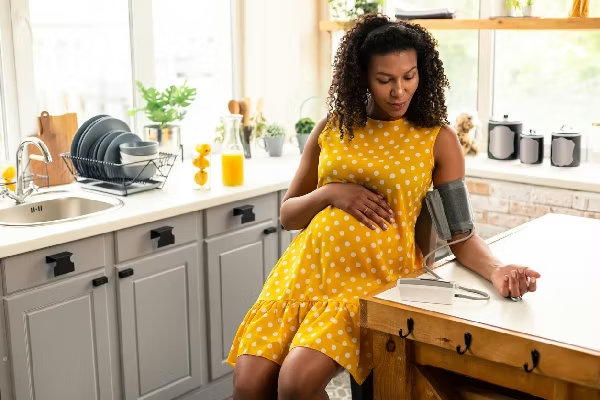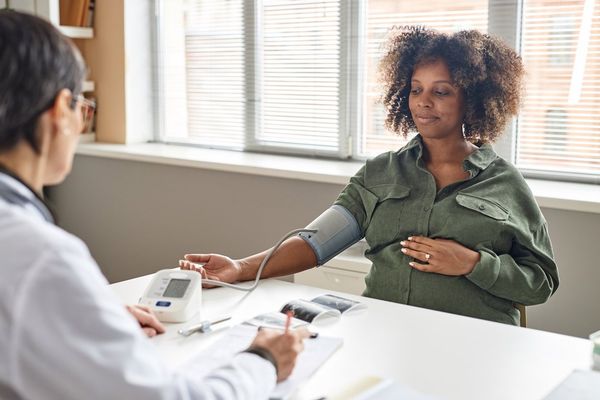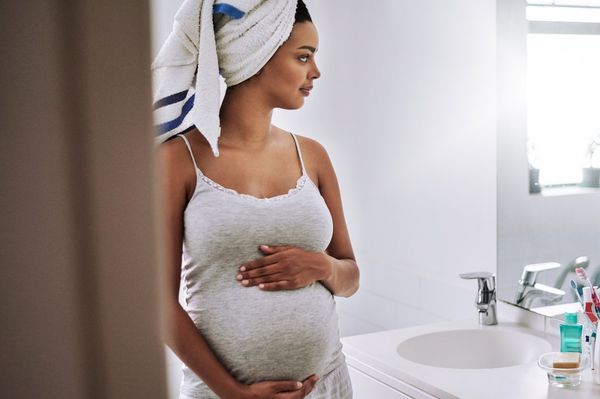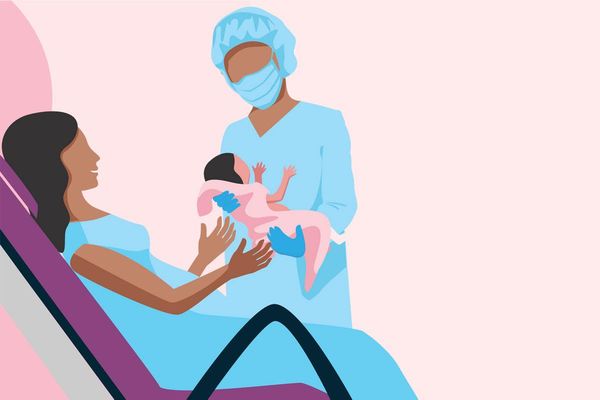During your 19th week of pregnancy, your baby is roughly the size of a pair of sunglasses and has proportionate arms and legs. Hair may be starting to sprout on his scalp.
Tip of the week:
There's no preventing round ligament pain, but there are some things you can do to alleviate the discomfort. If sudden movements trigger the pain, try moving a little slower when you stand or change positions. A warm, soothing bath may help ease dull pain. You may also want to look for maternity support belts, which can take some of the pressure off of your ligaments.
In addition, his senses are developing as his brain regions become more advanced. In fact, he may even be able to hear you, so don't hesitate to read, sing or talk to him so that he becomes familiar with your voice before even making an entrance into the world.
If you could see him right now, you might be a little alarmed at first because he's formed a coating on his skin called vernix caseosa. This waxy substance helps protect his delicate skin from the amniotic fluid, preventing him from looking like a little pink raisin when he's delivered.
As your baby gets bigger, the ligaments that surround your uterus begin to stretch and thicken to better support weight. While sensations stemming from this are a sign that your body is preparing itself effectively for childbirth, it may be a real pain—literally.
This discomfort is known as round ligament pain, and it can occur on one or both sides of your abdomen and may feel either short and stabbing when you change positions or dull and achy after a long day of physical activity. Some women report that the pain begins deep inside the groin area and moves up and out toward the hips.
Pay attention to the duration and severity of pain you feel, because sharp pains that last longer than a couple of seconds may signal something else. Conditions that share similar symptoms with round ligament pain include preeclampsia, placental abruption and preterm labor. Moreover, stabbing sensations on the right side of the abdomen can signal appendix problems unrelated to pregnancy.
Contact your health care provider if you experience this pain in conjunction with lower back pain, vaginal bleeding or unusual discharge, fever, chills, nausea, vomiting or a burning sensation when you urinate.







